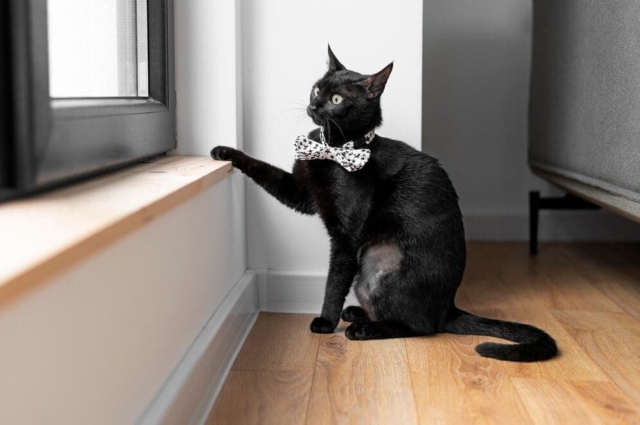
As a responsible pet owner, one of the most important decisions you can make for your feline companion is to have them spayed or neutered. Spaying refers to the surgical removal of a female cat’s reproductive organs, while neutering involves the removal of a male cat’s testicles. This procedure not only helps control the cat population but also offers numerous benefits for your pet’s health and well-being.
First and foremost, spaying or neutering your cat can prevent unwanted litters of kittens. The sad reality is that there are countless cats in shelters waiting for loving homes or, even worse, living as strays on the streets. By choosing to spay or neuter your cat, you are actively contributing to reducing the number of homeless cats and the strain on animal shelters.
Health benefits of spaying/neutering for cats
Aside from preventing overpopulation, spaying or neutering your cat has many health benefits. In female cats, spaying eliminates the risk of uterine infections and greatly reduces the chances of mammary gland tumors, which can be cancerous. Neutering male cats reduces the risk of testicular cancer and decreases the likelihood of prostate problems as they age.
Furthermore, spaying or neutering can help prevent certain behavioral issues in cats. Unneutered male cats are more prone to marking their territory by spraying urine, a behavior that can be quite challenging to manage. Female cats in heat can become agitated, vocalize excessively, and try to escape from the house in search of a mate. By spaying or neutering your cat, you can eliminate these unwanted behaviors and create a more peaceful living environment for both you and your furry friend.
When to spay/neuter your cat
The ideal time to spay or neuter your cat depends on their age and health condition. Most veterinarians recommend spaying or neutering cats between the ages of four and six months. At this age, cats have reached sexual maturity, and the procedure can be safely performed. However, it is essential to consult with your veterinarian to determine the best time for your cat, as individual factors such as breed and overall health can influence the timing.
It is worth noting that some people believe cats should experience at least one heat cycle or have a litter before being spayed. However, this is a common misconception. In fact, spaying your cat before her first heat cycle can prevent certain health issues, such as uterine infections and mammary gland tumors.
Spaying/neutering process for cats
The spaying or neutering process for cats is a surgical procedure that is performed under general anesthesia. The surgery itself is relatively quick, usually taking less than an hour. During spaying, the veterinarian removes the ovaries and uterus, while neutering involves removing the testicles. The incisions made are small and typically heal quickly.
Before the procedure, your veterinarian will conduct a thorough examination of your cat to ensure they are healthy enough for surgery. They may also recommend preoperative bloodwork to assess your cat’s overall health and identify any potential complications.
Recovery and aftercare for spayed/neutered cats
After the surgery, your cat will need a comfortable and quiet space to recover. It is essential to provide them with a warm and cozy area where they can rest undisturbed. Your veterinarian may prescribe pain medication or provide you with instructions on over-the-counter pain relief options to ensure your cat’s comfort during the recovery period.
To prevent infection and promote healing, it is crucial to keep your cat’s surgical incision clean and dry. Your veterinarian will provide specific instructions on how to care for the incision site. It is essential to follow these guidelines closely to minimize the risk of complications.
During the recovery period, it is important to limit your cat’s physical activity. Jumping and running should be avoided, as it can strain the incision site and slow down the healing process. Your veterinarian will provide you with a timeframe for when it is safe for your cat to resume normal activities.
Myths and misconceptions about spaying/neutering
There are several myths and misconceptions surrounding spaying or neutering cats that can lead to confusion among pet owners. One common misconception is that spaying or neutering will cause weight gain in cats. While it is true that spaying or neutering can slightly lower a cat’s metabolism, proper diet and exercise can easily prevent excessive weight gain. In fact, obesity in cats is more commonly caused by overfeeding and lack of exercise.
Another myth is that spaying or neutering will alter a cat’s personality. This is not true. The procedure does not change a cat’s fundamental personality traits, such as playfulness or affection. It may, however, help reduce certain behavioral issues associated with mating instincts, such as aggression or roaming.
Spaying/neutering as a responsible choice for pet owners
Choosing to spay or neuter your cat is a responsible decision that benefits not only your pet but also the entire feline population. By preventing unwanted litters, you are helping to reduce the number of homeless cats and the strain on animal shelters. Moreover, spaying or neutering your cat can significantly improve their health and well-being by eliminating the risk of reproductive-related diseases and reducing certain behavioral problems.
As a responsible pet owner, it is your duty to ensure the welfare of your furry companion. By spaying or neutering your cat, you are taking a proactive step towards creating a safer and healthier environment for them and future generations of cats.
Resources for low-cost spaying/neutering services
If cost is a concern, there are numerous resources available to help pet owners find affordable spaying or neutering services. Many animal welfare organizations and local shelters offer low-cost or subsidized programs to encourage responsible pet ownership. Additionally, some veterinary clinics may provide discounted rates for spaying or neutering, particularly during special events or awareness campaigns. It is worth exploring these options to ensure that cost does not become a barrier to providing the best care for your cat.
Conclusion
Spaying or neutering your cat is not only a responsible choice but also a crucial step towards improving their overall health and well-being. By preventing unplanned litters and reducing the risks of reproductive-related diseases, you are ensuring a better future for your pet and the feline population as a whole. Remember, the decision to spay or neuter your cat is a personal one, but it is a decision that can have a positive impact on the lives of many cats. So, take the responsible path and choose to spay or neuter your feline companion.
If you enjoyed my article, I would appreciate you sharing it with your network.

Sima Ndlebe
Sima writes for CatBuzz. He is interested in Cats, Health and Fitness, and Entrepreneurship.
Published: 11 October 2023
Related Articles
Disclaimer
The content found on CatBuzz.org is presented on an "as is" basis and is intended for general consumer information and education purposes only. Any utilization of this information is voluntary and solely at the user's own risk.
None of the articles or content should be regarded as, or used in place of, veterinary medical advice, diagnosis, or treatment. The information provided on the website is purely for educational and informational intentions and should not be considered a substitute for professional guidance from a veterinarian or other qualified expert. The articles are designed to inform consumers about veterinary healthcare and medical matters that may impact their cat's daily life. It should be noted that this website and its services do not constitute the practice of any form of veterinary medical advice, diagnosis, or treatment. CatBuzz.org explicitly disclaims any liability for any direct or indirect damages or losses that may arise from the use of or reliance on the information contained within the content.
Consumers must consult a veterinarian, veterinary specialist, or another qualified veterinary healthcare provider when seeking advice regarding their cat's health or medical conditions. It is important not to ignore, avoid, or postpone seeking medical advice from a veterinarian or other qualified veterinary healthcare provider solely based on information obtained from this website. If you believe that your cat may be experiencing a medical issue or condition, it is imperative to promptly contact a qualified veterinary healthcare professional.




